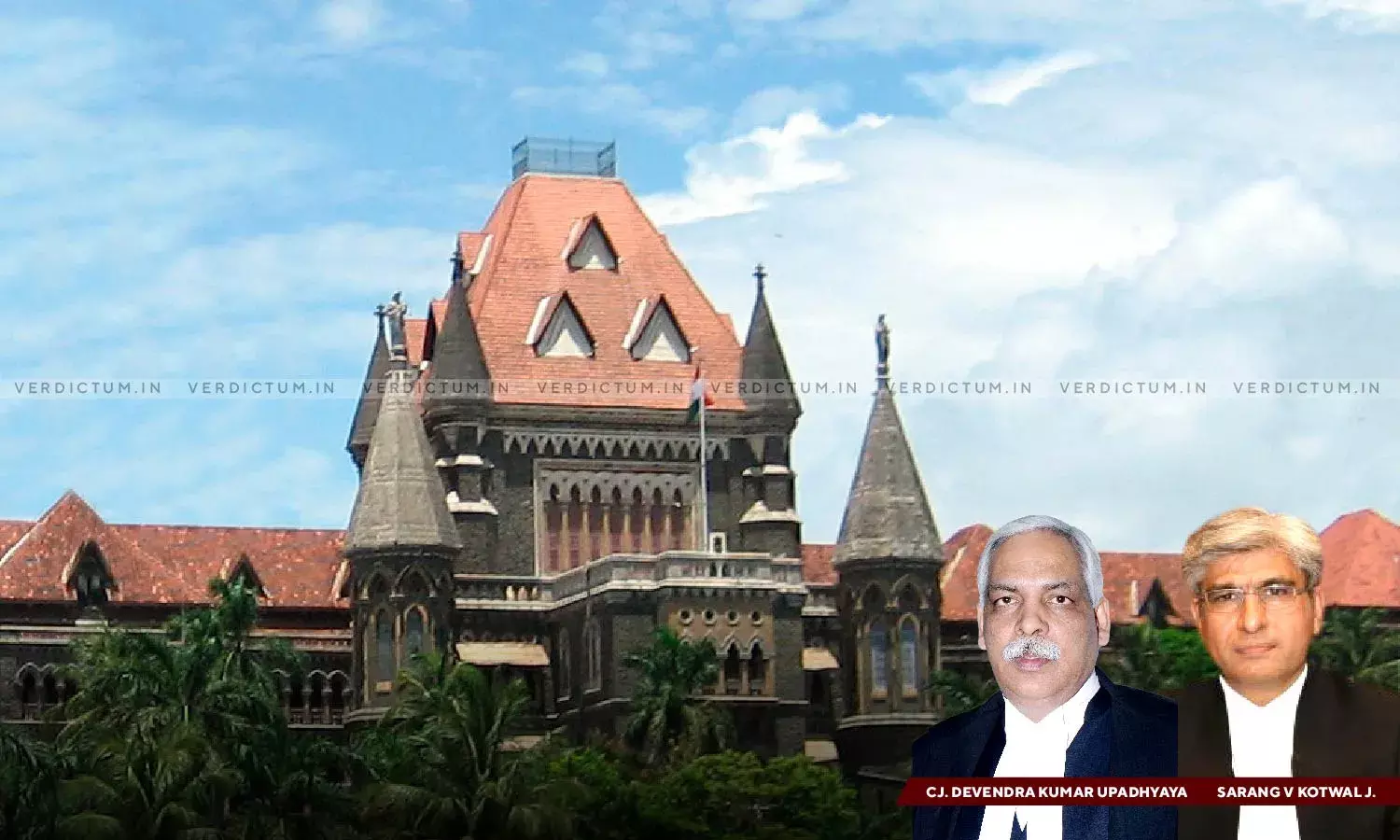Necessary To Video Record Any Proceeding Relating To SC/ST Act: Bombay HC

The Bombay High Court has held that it is necessary to video record any proceeding relating to the Scheduled Castes and Scheduled Tribes (Prevention of Atrocities) Act 1989, even though the proceedings are held in open Court.
To that end, the Bench of Chief Justice Devendra Kumar Upadhyaya and Justice Sarang V Kotwal observed that, "as of today all the Courts are not equipped with the facility of video recording. As mentioned earlier, as per Section 21 of the Atrocities Act it is the duty of the State Government to provide these facilities. Therefore, we direct the State Government to provide the facility of video recording in all the Courts in the State of Maharashtra wherever the proceedings under the Atrocities Act are to be taken up. This shall be done at the earliest. However, till the time such facilities are provided, the Courts where the facilities are not provided, may proceed without video recording the proceedings especially when the personal liberty of an accused is at stake."
Counsel Vaibhav Salvi, along with others, appeared for the appellants, while AG Birendra Saraf, along with others, appeared for the respondents.
The reference arose from Criminal Appeal No. 911/2019, which involved an appeal under the Scheduled Castes and Scheduled Tribes (Prevention of Atrocities) Act, 1989. The appellants sought bail in connection with a case registered under various sections, including Section 306 of the Indian Penal Code, the Maharashtra Prohibition of Ragging Act, sections of the Atrocities Act, and the Information Technology Act.
During the appeal hearing, the issue of video recording the proceedings arose based on Section 15-A(10) of the Atrocities Act, which mandates video recording of all proceedings related to offenses under the Act. Initially, a judge ruled in favor of video recording, emphasizing the importance of victim and witness rights. However, another judge disagreed, expressing concerns about the impact on proceedings and potential misuse of technology.
The Advocate General and Additional Solicitor General provided arguments supporting the mandatory nature of Section 15-A(10). They emphasized the broad interpretation of terms like "all proceedings" and "relating to" in the statute. Additionally, they cited relevant case law and legislative intent to argue for compliance with the provision.
The High Court made the following observations:
(1) The ‘proceedings’ under Section 15-A(10) of the Scheduled Castes and Scheduled Tribes (Prevention of Atrocities) Ac 1989 would cover all proceedings including a ‘judicial proceeding’ as contemplated under section 2(i) of the Code of Criminal Procedure, 1973.
(2) It would be necessary to video record any proceeding relating to the Scheduled Castes and Scheduled Tribes (Prevention of Atrocities) Act 1989 even though the proceedings are held in open court. The objective to be achieved is effective implementation of the Amended Chapter IV-A of the Atrocities Act, which is meant to protect the rights of victims and witnesses.
(3) Hearing of a bail application under section 14-A of the Scheduled Castes and Scheduled Tribes (Prevention of Atrocities) Act 1989 is a ‘judicial proceeding’ as contemplated under section 15-A of the Atrocities Act.
(4) Section 15-A (10) of the Scheduled Castes and Scheduled Tribes (Prevention of Atrocities) Act 1989 can be implemented in the absence of rules framed under the Act or formulation of a scheme for implementation.
Appearances:
Appellants: Counsels Vaibhav Salvi, Ashwet Bhoir, Sailesh Kharat
Respondents: AG Birendra Saraf, PP HS Venegaokar, APP SV Gavand, ASG Devang Vyas, Counsels DP Singh, Sheelang Shah, Amit Arvind Katarnaware
Cause Title: Dr. Hema Suresh Ahuja vs The State of Maharashtra & Anr.
Click here to read/download the Judgment

